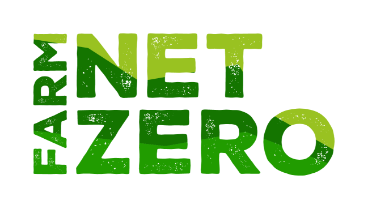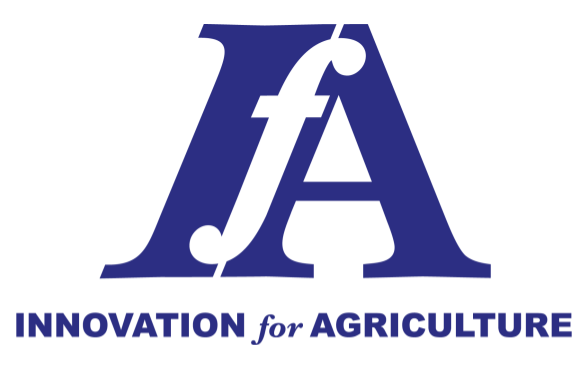Innovative Farmers is a not-for-profit network giving farmers research support and funding on their own terms. Through the network, groups of farmers can work directly with a researcher to design hands-on, practical on-farm trials known as ‘field labs’. The programme is managed by the Soil Association.
Within the Farm NetZero project, five farmer-led field labs have been established across Cornwall, and farmers based across Cornwall are invited to contact us to register their interest or submit ideas on topics they’d like to research.
Photo credits: Innovative Farmers
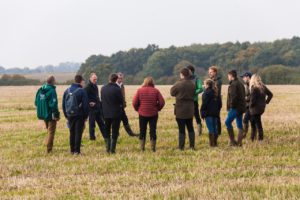
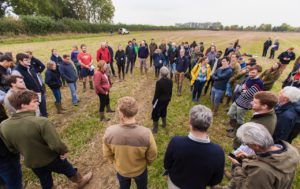
Field Lab #1: Optimised compost management for productivity and soil health
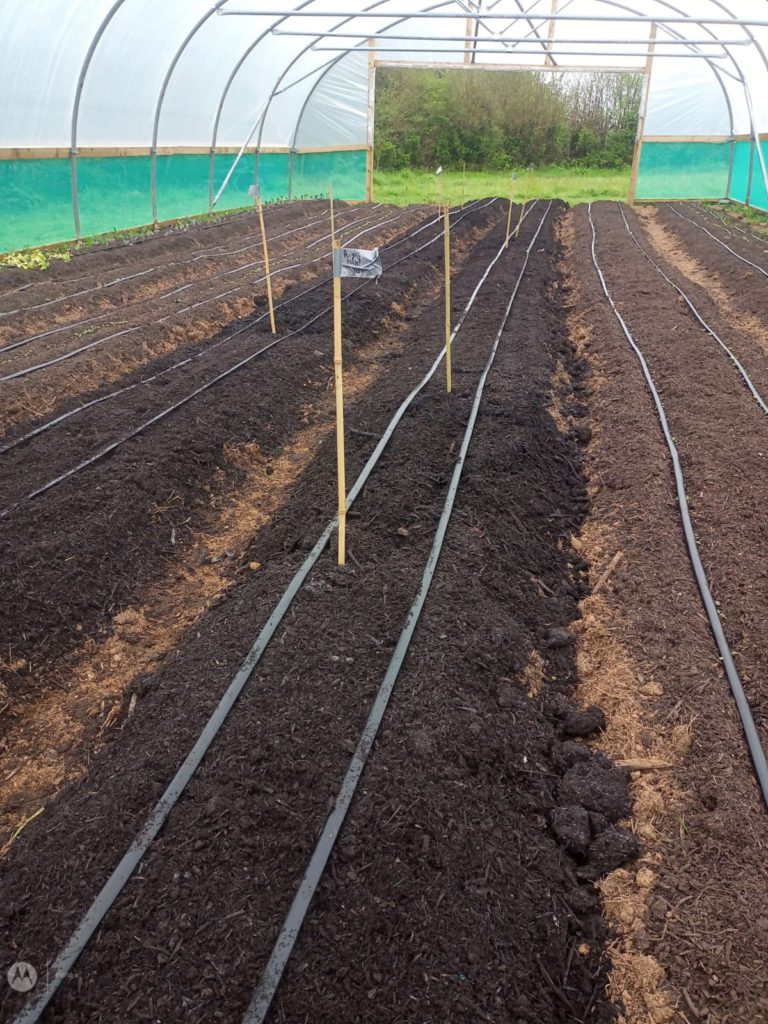
The first Field Lab in this project is exploring how compost quality can be influenced by a wide range of variables during the production process.
Click here to view full details about this Field Lab.
The farmer-led research will assess how compostable materials, compost management and temperature levels affect nutrient availability, pH, and levels of weeds and disease risk.
Growers will trial a range of compost management techniques including turning according to temperature rather than on a timed schedule, and adding biochar, bokashi, and bespoke microbial concoctions. All compost treatments will be replicated to deliver rigorous results.
Field Lab #2: Maximising the benefits of different maize establishment methods for yield and soil health
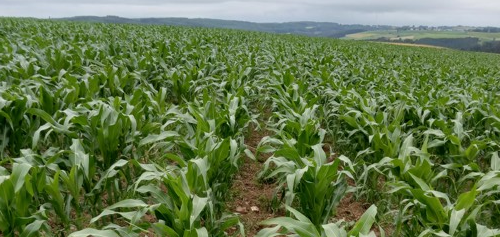
This two-year field lab investigates the effect of minimal cultivation systems on soil and yield of maize. The trial is based on an initial trial carried out by Monitor farmers Catherine and Malcolm Barrett in 2022. The researchers are Plymouth University.
Maize is a very valuable silage crop for the dairy industry due to its high starch and high dry matter yield potential. Traditionally maize is established through heavy cultivation, usually including ploughing and power harrowing. This heavy cultivation combined with shallow root systems and a late harvest period can leave the soil in maize fields vulnerable to erosion and runoff, especially at harvest. This runoff, often phosphate-heavy, can cause pollution to nearby watercourses.
By trying alternative establishment methods including strip-tilling, farmers are hoping to:
- reduce the harmful impact of maize growing on soil structure, causing less erosion and runoff
- reduce costs by using less fossil fuels and saving labour costs
- increase the speed of establishment
- improve the yield of the following crops
Click here to view full details about this Field Lab.
Further information is also here, namely how farmers are looking to help rivers and climate by cutting plough use in maize trials
Field Lab #3: Do herbal leys affect milk yield and quality?
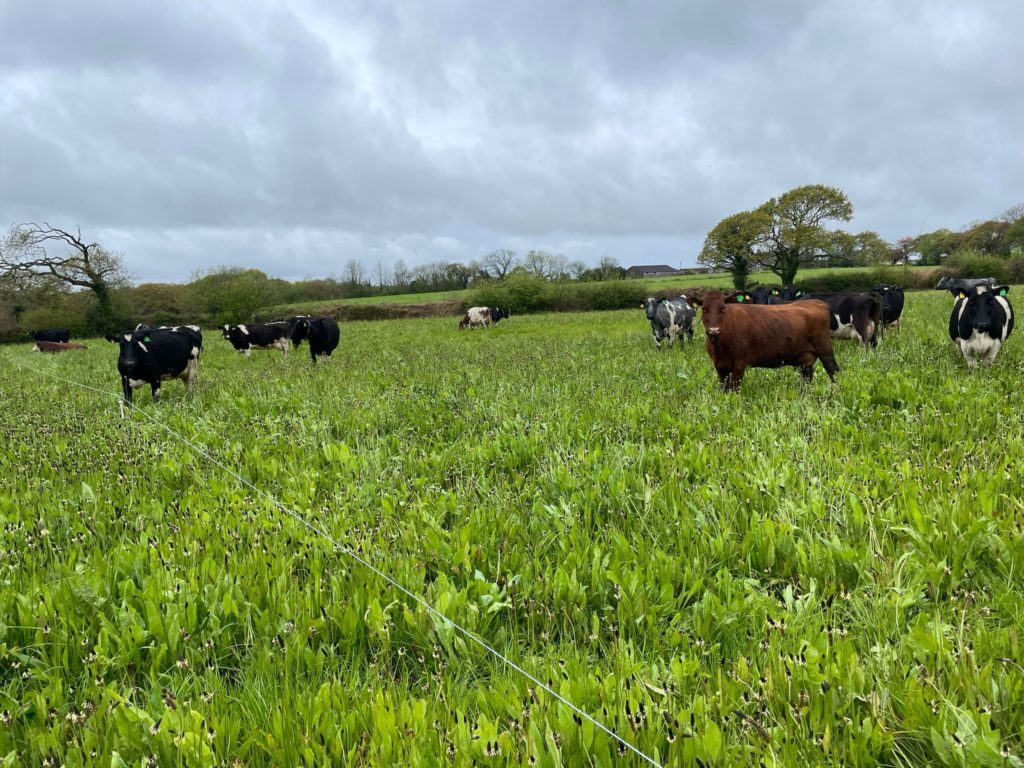
Establishing diverse swards can improve the resilience of grazing platforms. However, the unquantified effect of increased sward diversity on milk yield and quality is a potential financial risk for dairy farmers.
In this Farm Net Zero field lab, Andrew Brewer, FNZ monitor farmer, will monitor the difference between milk produced by cows grazing a rye grass sward, and cows grazing a herbal ley / diverse sward.
The research is being led by Dr Daniel Enriquez Hidalgo of Bristol Veterinary School, with assistance from Cornwall Wildlife Trust and Trifolium Services.
Why Herbal leys?
There are many accepted benefits of growing herbal leys, they can:
- Improve soil structure and health
- Provide resilience in dry periods
- Extend the grazing season
- Benefit carbon sequestration
- Nitrogen fixation from legume species – so requires little fertiliser
- Improve livestock growth rates when rotationally grazed
- Improve biodiversity of bird and insect species
- Some species have anthelmintic properties – so less need for wormers
This field lab aims to look at the direct impacts on milk yield and quality. Andrew will divide his herd into two groups; one will be grazed on a standard rye grass-clover ley. The other will be grazed on herbal leys. The milk yield and main constituents will be regularly monitored from each group. The forage will be sampled and analysed monthly throughout the growing season to get an idea of which species are dominating.
Click here to view full details about this Field Lab.
Field Lab #4: Development of diverse covers and leys to reduce worm burden increase at weaning
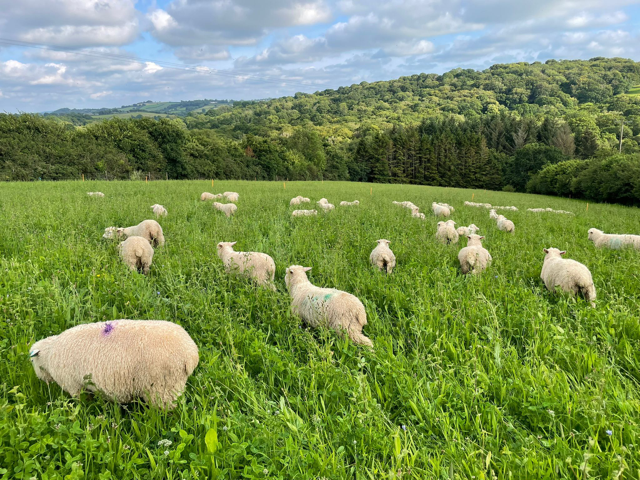
Weaning can cause a sudden increase in worm burden in lambs. This effect can be offset by secondary metabolites in the forage but also by enhanced forage protein content. The motivation for this project has been to increase lamb welfare, reduce the need for anthelmintics, enhance growth rate, and improve soil health. Furthermore, the potential change in greenhouse gas emissions will be modelled for each treatment.
Click here to view full details about this Field Lab.
Four farmers have designed this field lab with support from DLF Seeds Ltd. Each farm has two trial fields; one field is for cover crop comparison, and the other for temporary ley treatments.
The cover crop fields have been sown half with the commonly used kale, and the rest of the field is sown to crimson clover, chicory and plantain. The temporary ley field control is rye grass and white clover compared to a diverse herbal ley trial mix. Soil health has been assessed for each sward.
Ewe lambs were weaned and weighed onto the trial swards, and faecal egg count (FEC) scores taken. Each farm has 4 mobs of lambs, two mobs in the cover crop field, and two mobs in the herbal ley field. The forage is being strip grazed. Once the fields have been grazed lambs will be weighed off, condition scored and FEC counts taken.
The project results will be available in the autumn 2024. Come and see the trial in action at this event.
Field Lab #5: Management of docks (Rumex obtusifolius) through enhanced soil health
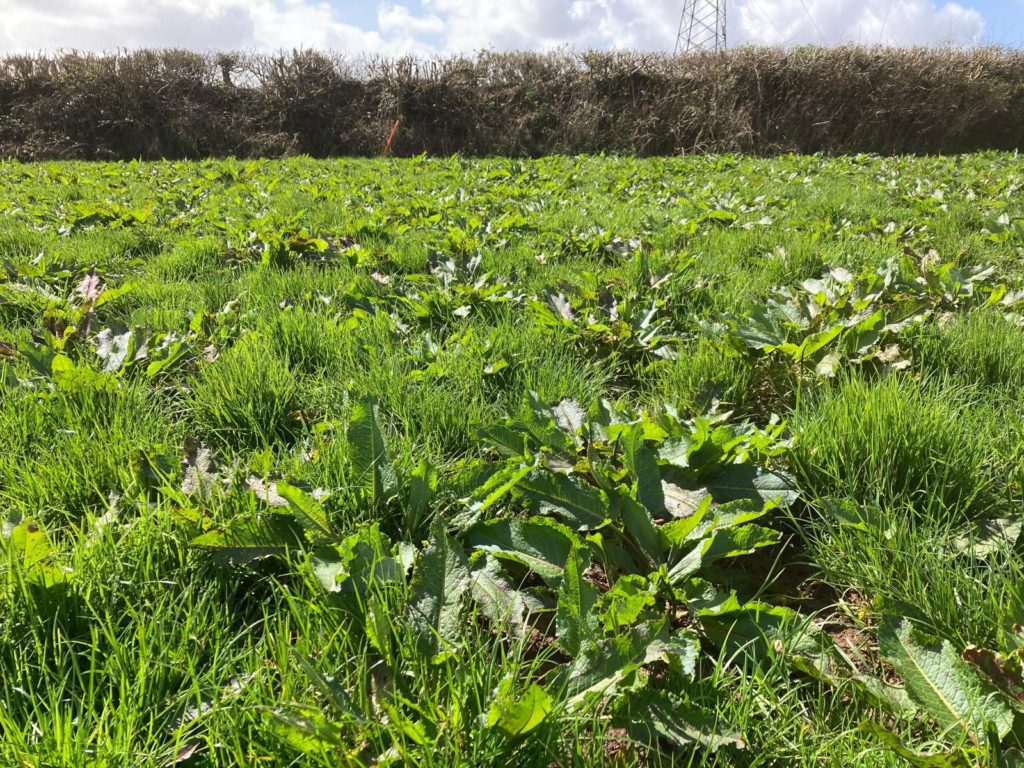
Dock infestation can be a major challenge on grassland. Conventional management commonly involves using herbicides to combat the weed. However, the use of broad-leaf herbicides are not a viable option in dock-infected herbal leys because the desirable herb diversity would be lost.
Click here to view full details about this Field Lab.
Rumex species have a competitive advantage against many other species in a sward when soils are compacted and/or low in calcium. This field lab has been designed to test whether addressing the issues of soil compaction and/or calcium deficiency can reduce the dock vigour in the sward.
Each participatory farmer had one dock-infested field assessed for macro and micronutrients and for soil health. Subsequently, farmers have been given a soil report detailing what potential measure they could take to reduce the conditions favouring docks in the field. Interventions potentially include the use of a slitter or subsoiler depending upon compaction depth and/or a readily available calcium source.
Each field has all possible treatment combinations in order to test the hypothesis across 9 farms. The trial will be complete at the end of 2024.
More information about Field Labs
Field Labs #4 and #5 are co-ordinated by Farm Carbon Toolkit, and Labs #1, #2 and #3 by Innovative Farmers. For more information please feel free to contact [email protected]
Innovative Farmers work with farmers across all farming types, both conventional and organic. Farmers are matched with other interested farmers, a coordinator and researcher to design and carry out on-farm trials around practices associated with an increase in soil organic carbon. They will be supported to analyse the findings to inform their farming decisions and will have the option of receiving training to improve their data collection and research skills. The results of field labs and farmer stories will be shared openly for knowledge exchange across the network.
To date, Innovative Farmers have helped to launch over 170 field labs and awarded over £400k in small grants. Find out more about current and past field labs at www.innovativefarmers.org or contact [email protected] to register your interest in joining a field lab.
Innovative Farmers (formerly known as the Duchy Future Farming Programme) is primarily funded by the King Charles III Charitable Fund through the sales of Waitrose Duchy Organic products. The programme is managed by the Soil Association.
Farm Net Zero
A community of farmers in Cornwall taking action to address climate change and protect soil health. Showcasing innovation, engaging the public and providing robust science through soil testing and footprinting:

